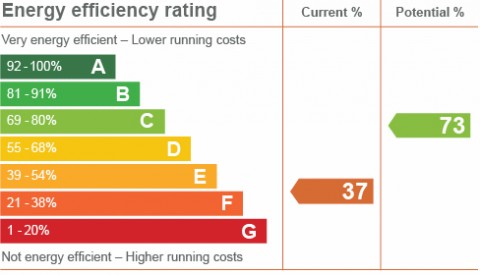
While the demand for rental property has left many people feeling that being a landlord is a great past-time, there is no doubt that life can be tough for landlords. There is often a lot more work involved with the role than people think and if you are unaware of the laws and regulations regarding being a landlord and the condition of your property, you may be in for a shock. It is vital that landlords understand the latest regulations regarding their property, and that action is taken to comply fully with all regulations.
One aspect that is important regarding the condition of the home is the Energy Performance Rating. There is a need for property to hold an Energy Performance Certificate (EPC) and a landlord should pass this to the tenant when they move in. However, as of 1st of April 2018, there will be a minimum requirement for residential property that is being let. This means it will no longer be enough to have an EPC for the property, the rating of the EPC must be an E or better.
Changes are coming on 1st of April 2018
The first rule change applies to tenancies that begin or are renewed after the 1st of April 2018 and by 1st of April 2020, this ruling will apply to all tenancies. The potential fine to landlords who are in breach of this ruling is £5,000 so this could be a costly oversight from a landlord. At a time when landlords are closely examining their rental yields to ensure that they can make a profit on an annual basis, facing a fine of this magnitude could make a massive difference overnight.
Any property that is classed as an F or a G will be considered unsuitable with respect to the regulations. Landlords are prohibited from letting substandard property until improvements have been carried out to bring the property up to the required level. While there is nothing to stop the landlord from significantly improving the rating of the property, and this will have longer-0term benefits for the landlord and tenants, the minimum is for the landlord to ensure the property reaches a level E rating on the EPC. This is likely to incur a cost due to the improvements but without this expenditure, a landlord may face a fine as stated above.
There are some exceptions to the ruling and if a landlord find that consent is denied by a third party or even the tenant, they can be exempt from the penalties associated with this ruling. At Spencer Harvey, we appreciate that life isn’t easy for landlords and many professionals will consider this to be another attack on their industry. However, improving the EPC ratings of a home benefits everyone and in the long term, the landlord will also be better off through carrying out this work.
